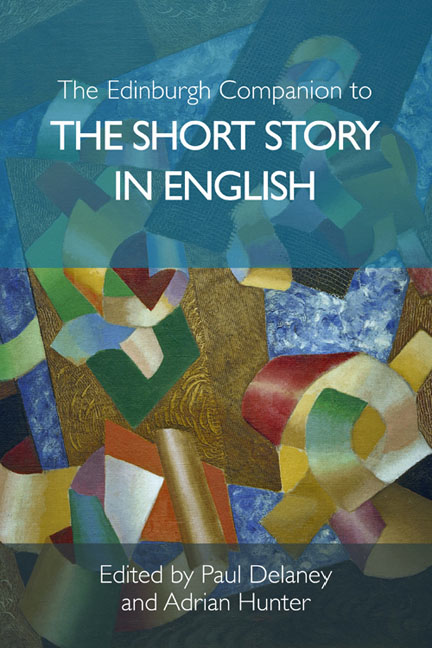Book contents
- Frontmatter
- Contents
- Acknowledgements
- Notes on Contributors
- Introduction
- Part I Historicising the Short Story
- Part II Publishing the Short Story
- Part III Forms of the Short Story
- Part IV Placing the Short Story
- Part V Identity and the Short Story
- 18 Gender and Genre in the Short Story
- 19 Diaspora and the Short Story
- 20 The Queer Short Story
- 21 Disability and the Short Story
- Index of Short Story Titles
- General Index
18 - Gender and Genre in the Short Story
from Part V - Identity and the Short Story
Published online by Cambridge University Press: 18 December 2019
- Frontmatter
- Contents
- Acknowledgements
- Notes on Contributors
- Introduction
- Part I Historicising the Short Story
- Part II Publishing the Short Story
- Part III Forms of the Short Story
- Part IV Placing the Short Story
- Part V Identity and the Short Story
- 18 Gender and Genre in the Short Story
- 19 Diaspora and the Short Story
- 20 The Queer Short Story
- 21 Disability and the Short Story
- Index of Short Story Titles
- General Index
Summary
When you meet a human being, the first distinction you make is ‘male or female?’ and you are accustomed to make the distinction with unhesitating certainty.
(Sigmund Freud)Genre theory is … about the ways in which different structures of meaning and truth are produced in and by the various kinds of writing … by which the universe of discourse is structured. That is why genre matters: it is central to human meaning-making and to the social struggle over meanings.
(John Frow)GENDER AND GENRE ARE related in more ways than one. A glance at the dictionary tells us that the two words were born from the same root word in Latin by way of Old French – genus, meaning type or kind. In modern French, genre means both gender and genre. That etymological connectedness expands beyond the simple fact of the shared root word: genre is gendered; gender (in literary terms, at least) is also ‘genred’. What writers produce and what readers consume is often (but certainly not always) closely aligned to their genders. The ‘unhesitating certainty’ of gender distinctions in social life of which Freud writes in his 1933 essay on ‘Femininity’ is also a form of genre reading. His suggestion is that we know a man from a woman by signs that we have learned to read as part of our social training: these signs are biological (facial hair or its lack, deep or high voices, etc.); they are also social – masculinity and femininity are signalled by conventions of clothing and predicted behaviours that attach to the genders in a given society.
John Frow's comments are focused on forms of writing rather than on forms of people, but his comment that genre is ‘central to human meaning-making’ echoes Freud's focus on the centrality of gender in social interactions beyond the page. This is not accidental. The social learning that goes into telling us both that a given person is male or female and that certain behaviours are expected of us as men or women is part of a continuum in which literary texts also play their part. Texts both reflect in mediated ways an existing social reality, and they are also one means for understanding that reality. And in genre, gender matters from the outset – from the very first ‘once-upona- time’ – of our reading lives.
- Type
- Chapter
- Information
- The Edinburgh Companion to the Short Story in English , pp. 293 - 312Publisher: Edinburgh University PressPrint publication year: 2018

